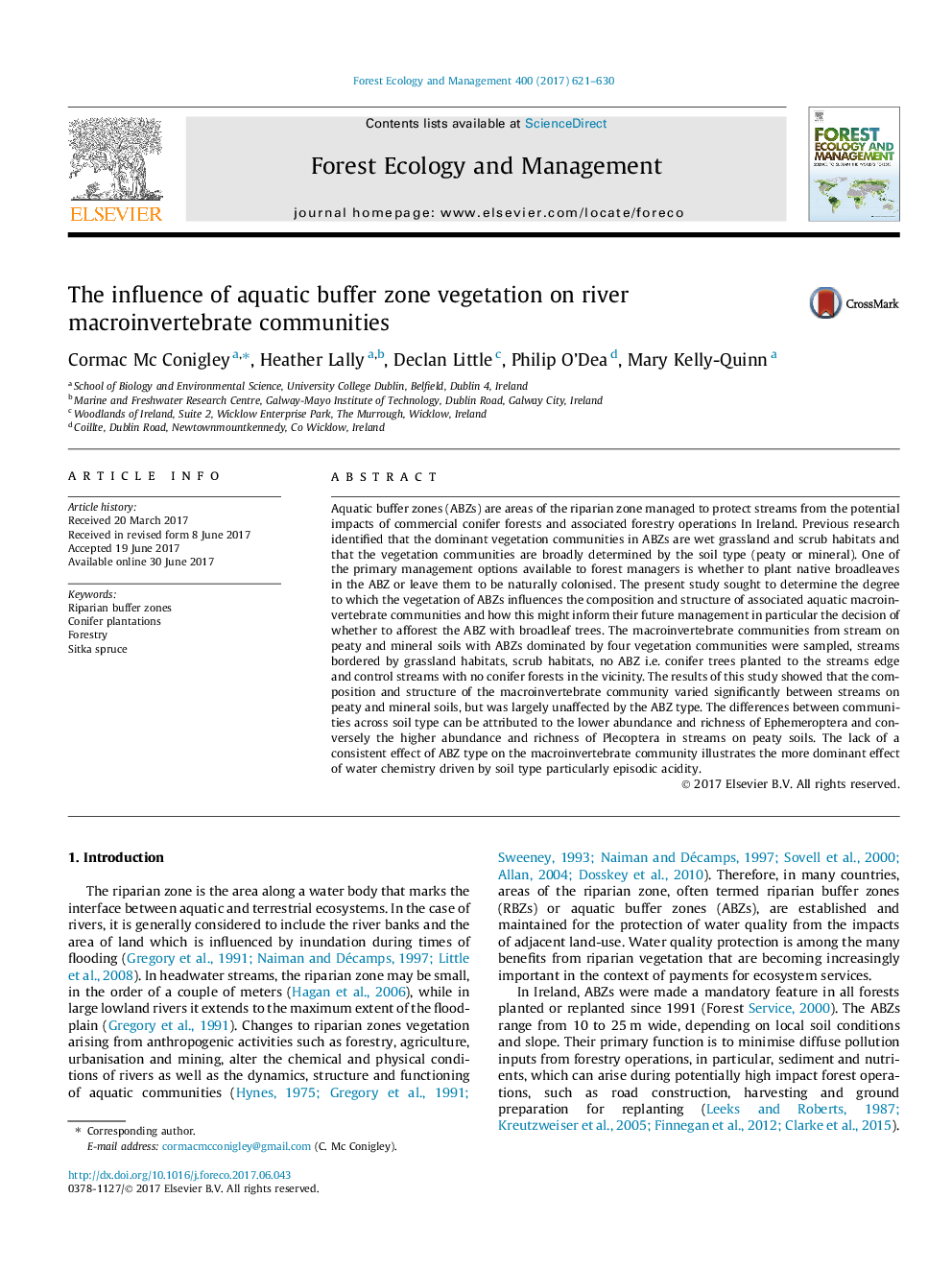| Article ID | Journal | Published Year | Pages | File Type |
|---|---|---|---|---|
| 6459310 | Forest Ecology and Management | 2017 | 10 Pages |
â¢Soil type significantly influences aquatic macroinvertebrate communities.â¢Episodic acidity negates some of the benefits of riparian zones vegetation.â¢A lack of retention may reduce the influence of allochthonous leaf litter.
Aquatic buffer zones (ABZs) are areas of the riparian zone managed to protect streams from the potential impacts of commercial conifer forests and associated forestry operations In Ireland. Previous research identified that the dominant vegetation communities in ABZs are wet grassland and scrub habitats and that the vegetation communities are broadly determined by the soil type (peaty or mineral). One of the primary management options available to forest managers is whether to plant native broadleaves in the ABZ or leave them to be naturally colonised. The present study sought to determine the degree to which the vegetation of ABZs influences the composition and structure of associated aquatic macroinvertebrate communities and how this might inform their future management in particular the decision of whether to afforest the ABZ with broadleaf trees. The macroinvertebrate communities from stream on peaty and mineral soils with ABZs dominated by four vegetation communities were sampled, streams bordered by grassland habitats, scrub habitats, no ABZ i.e. conifer trees planted to the streams edge and control streams with no conifer forests in the vicinity. The results of this study showed that the composition and structure of the macroinvertebrate community varied significantly between streams on peaty and mineral soils, but was largely unaffected by the ABZ type. The differences between communities across soil type can be attributed to the lower abundance and richness of Ephemeroptera and conversely the higher abundance and richness of Plecoptera in streams on peaty soils. The lack of a consistent effect of ABZ type on the macroinvertebrate community illustrates the more dominant effect of water chemistry driven by soil type particularly episodic acidity.
